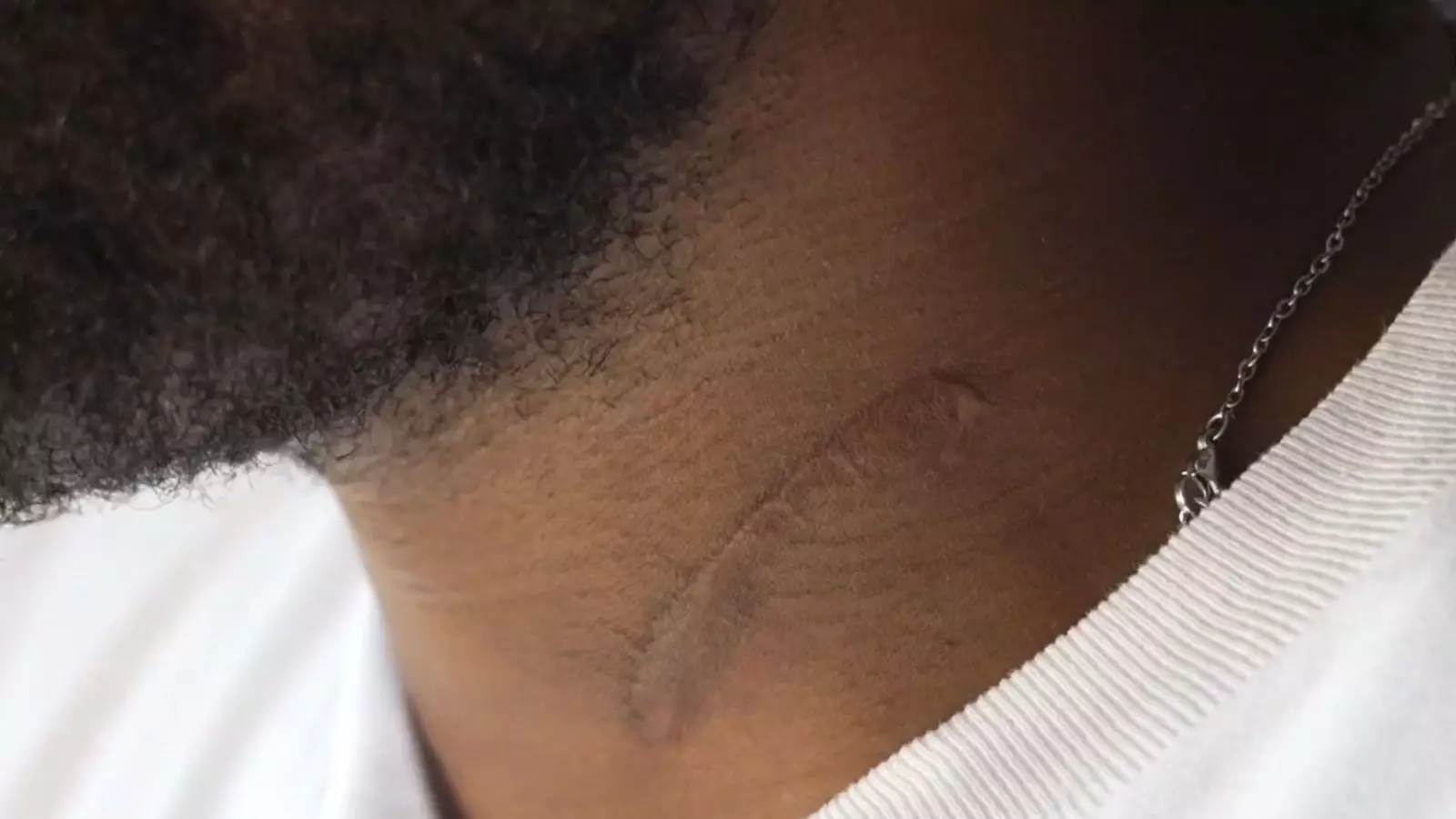In an era marked by rising violence, the chilling account of Donato Iwule—a survivor of the Hainault samurai sword rampage—reveals the harrowing reality that violence is not an abstraction but a palpable threat to our very existence. As he faces the haunting memory of Marcus Arduini Monzo’s vicious attack, which left one 14-year-old boy dead and many others scarred for life, Iwule’s experience transcends his individual struggle and echoes a societal crisis. It challenges us to examine the roots of such brazen violence and our collective responsibility to curb it.
Iwule described his encounter with Monzo as akin to a scene from a horror film. Immersed in his daily routine, he suddenly became an unwilling participant in a life-or-death struggle. Monzo’s chilling declaration, “I’m going to kill you,” punctuates the surreal horror. Iwule’s instinct to inquire about his attacker’s well-being in the face of imminent death speaks volumes about the human condition—an innate compassion that feels tragically out of place in such a savage context. His incredulity at Monzo’s anger reveals a fundamental conflict that plagues many victims: the question of why.
The Pathology of Violence: Understanding the Unthinkable
This incident isn’t merely a product of one man’s rage; it exposes a deeper societal malaise. What drives a human to such grotesque means of expression? Monzo, now condemned for his gruesome acts, becomes a symbol of the turmoil festering within those who embark on violent crusades. It’s essential to probe into the factors—social isolation, mental health issues, and perhaps a history of violence—that may inform such behavior. In a society increasingly polarized by fear and hate, one must ask if Monzo’s violent expression is a manifestation of larger systemic issues.
Iwule’s chilling narrative invites society to reflect critically on how we treat those with mental health needs, marginalized communities, and victims of violence. The ongoing discourse surrounding mental health support remains inadequate as we grapple with the ripple effects of violent crimes, not only for victims like Iwule but for entire communities. There’s an urgent need for policies that facilitate early intervention, empathy, and rehabilitation rather than marginalization and neglect.
The Ripple Effects: Trauma Beyond the Incident
The psychological toll on Iwule post-attack serves as a somber reminder of the long-lasting effects of violence. His expression of trauma highlights the unseen scars that many victims carry—sleepless nights haunted by moments of terror, a pervasive fear that permeates daily life, and the inability to find solace even in familiar spaces. The trauma he endured is not merely a private struggle but a communal burden we must acknowledge. Society needs to confront its responsibility to heal, not only to provide support for survivors but also to create an environment where such horrors do not recur.
Iwule’s narrative illustrates the courage and resilience it takes to work through traumatic experiences. Yet, it also raises grave concerns about the inadequacy of support structures for survivors of violent crime. Despite his fortitude, the emotional impact will linger, a shadow cast by an experience that should never be normalized. The legal outcome—a conviction—may provide some semblance of justice, but it does little to erase the psychological imprint.
A Call to Action: The Power of Community Resilience
As we reflect on the Hainault samurai sword rampage, let us not forget the call to action embedded within Iwule’s survival. Our communities must come together, fostering dialogue around violence and trauma while actively participating in initiatives aimed at prevention. It calls for reform and a reevaluation of how violence is treated in our society—lessons that echo far beyond this singular incident.
In considering the wider implications of this tragedy, we are reminded of our shared humanity. We can and must do better in addressing the factors that lead to violence. While Monzo faces the consequences of his actions—sentences and judgment—the fight against this virulent society-wide issue demands ongoing engagement from all sectors of our community.
In the face of horror, let us choose to resist despair and engage in meaningful conversation—a pathway to healing that honors survivors like Donato Iwule and works proactively to shield future generations from suffering similar fates.

